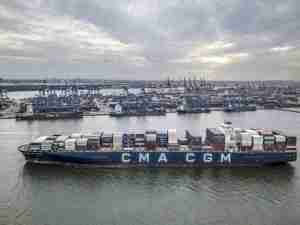A lack of pipeline capacity to move rising output from Eagle Ford, in southwest Texas near one of the world's largest refining regions, has pushed companies toward barges to get the highly valued light sweet crude to customers.
Rising demand for the crude has been a boon for barge operators like Houston-based Kirby, which carries oil, petrochemicals and refined petroleum products on inland and coastal waterways.
"What you are seeing now and will see for the next several years are cargoes gathered in the field and taken to water, put on barges both on and offshore," said Joe Pyne, chief executive officer.
"There is not enough pipeline. There will always be water demand. It will come off for a while but the volumes are expanding."
Production of crude oil from the vast Eagle Ford prospect has jumped to about 160,000 barrels per day from 71,000 barrels bpd two months ago, according to energy consultancy Bentek. Analysts estimate production could eventually hit 420,000 bpd.
Midstream companies are scurrying to build or expand pipelines from Eagle Ford toward the Gulf Coast, committing over $1 billion in hopes of completing to projects over next two years.
Privately held Koch Pipeline will be able to carry more than 350,000 barrels per day through its own lines and through lease agreements with other companies like NuStar Logistics to terminals in Corpus Christi and Ingleside by next summer.
Coastal Optioms
Before aquiring K-Sea Transportation Partners on July 1, Kirby's fleet was limited to inland waterways. The company had total inland tank barge capacity was 650,000 barrels, including 21 30,000-barrel barges and five 1,000-barrel barges, a number the company expects to stay consistent as new barges replace those being retired.
A large percentage of those tank barges are used transport petrochemicals and refined products. The company has about 80 percent of its fleet under long term contract.
"Our fleet expansion is going to be modest, driven more by servicing our existing long-term customers than just building for Eagle Ford," said Pyne, who said that many of those long-term customers opted to accept price increases as demand for barges grow.
Following the K-Sea acquisition for $604 million in cash, the company is now looking to supply coastal refineries, including plants in Louisiana, which have a strong appetite for Eagle Ford's light sweet crude.
"The terminals are a positive for us. We can load barrels onto marine equipment and take it further up the coast," said Pyne.
K-Sea's core customers include refiners -- including the two on the Delaware River -- and major oil companies with facilities in New York, Philadelphia, Norfolk, Seattle and Honolulu.
K-Sea has 58 mostly-double hulled tank barges with the average age of 9 years old, making it one of the youngest fleets in coastal trade, Pyne said.
Earnings from inland barge operator Kirby rose 42 percent in the second quarter as strong demand for tank barges pushed rates higher.
The Houston, Texas company earned $41.7 million in the second quarter of 2011, or 77 cents a share, compared with the $29.3 million or 54 cents a share earned in the year earlier quarter despite a 7 cent negative impact for flooding along the Mississippi River. (Reuters)








